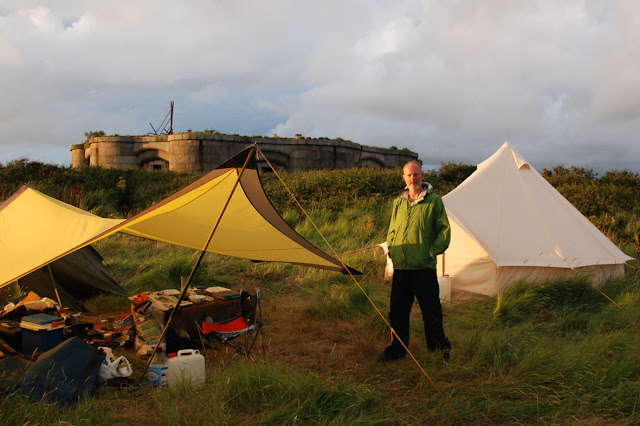A series of pinhole photographs I made in Auschwitz, Poland, using a wooden box and photo paper.
Holocaust denial is, terrifyingly, a fact. Whilst I was making the pinhole of the front gate, that you can see below, a couple of women whom I undertood to be tourists came out of the death camp and took photos of themselves giving the 'Work Makes You Free' sign a Nazi salute. We're in the midst of a very dangerous time, when words and photos and other methods of communication mean nothing to a great many people other than as a means to satisfy their lowest wants. It's important, then, to keep the flame of truth alive and recognise days such as this Holocaust Memorial Day.
My great uncle Harry was in the British army from 1931 until 1947, and was captured during the first weeks of World War 2. He spent the remainder of the war in a prison camp, until he was forced to march, with thousands of others, on what became known as The Death March. When he was rescued by the allies in 1945 he was a barely walking skeleton. What follows is a small part of a far wider interview about his war time experiences that I did with him for a family tree book.
"I never had a bath for 5 years. Once the Germans gave me a bit of soap but I wouldn't use it because we knew what was happening to the Jews. We thought the soap was made from their fat. I first heard about what was happening to the Jews in 1943. I was in Lodz, in Poland, at a camp on Adolph Hitler Strasse. I was a sergeant major so was what the Germans called a 'Zonderfuhrer', in other words I was answerable to the Germans for the prisoners I was in control of. So the Germans used to try to soften me up, get me on their side, and take me for a walk in the town now and again. Once a German soldier who was accompanying me was in front of me, at a street corner, and a woman behind me whispered in perfect English, 'Do you know what they're doing to the Jews at Belsen? They're being incinerated.'
I could also see what was happening to them at one of the ghettos. One of our men had died and was buried outside the camp and I used to insist on visiting the grave to see that it wasn't interfered with, and to get there I had to go past the ghetto. The place was terrible. You'd see all these women, children, men, fenced in, just shuffling about, with yellow stars on their chests, they were in a worse state than we were."
 |
| Formerly the Jewish Ghetto, Krakow |
 |
| Formerly the Jewish Ghetto, Krakow |
 |
| Train tracks at Auschwitz |
 |
| Entrance gate of death camp 1 |
 |
| "Work makes you free" |
 |
| Watchpost |
 |
| Entrance gate, reverse view |
 |
| Internal fences |
 |
| Watchtower and internal gate, death camp 2 |
 |
| Medical experimentation block on the left |
 |
| Gas chambers entrance |
 |
| Step and platform of gallows |






















